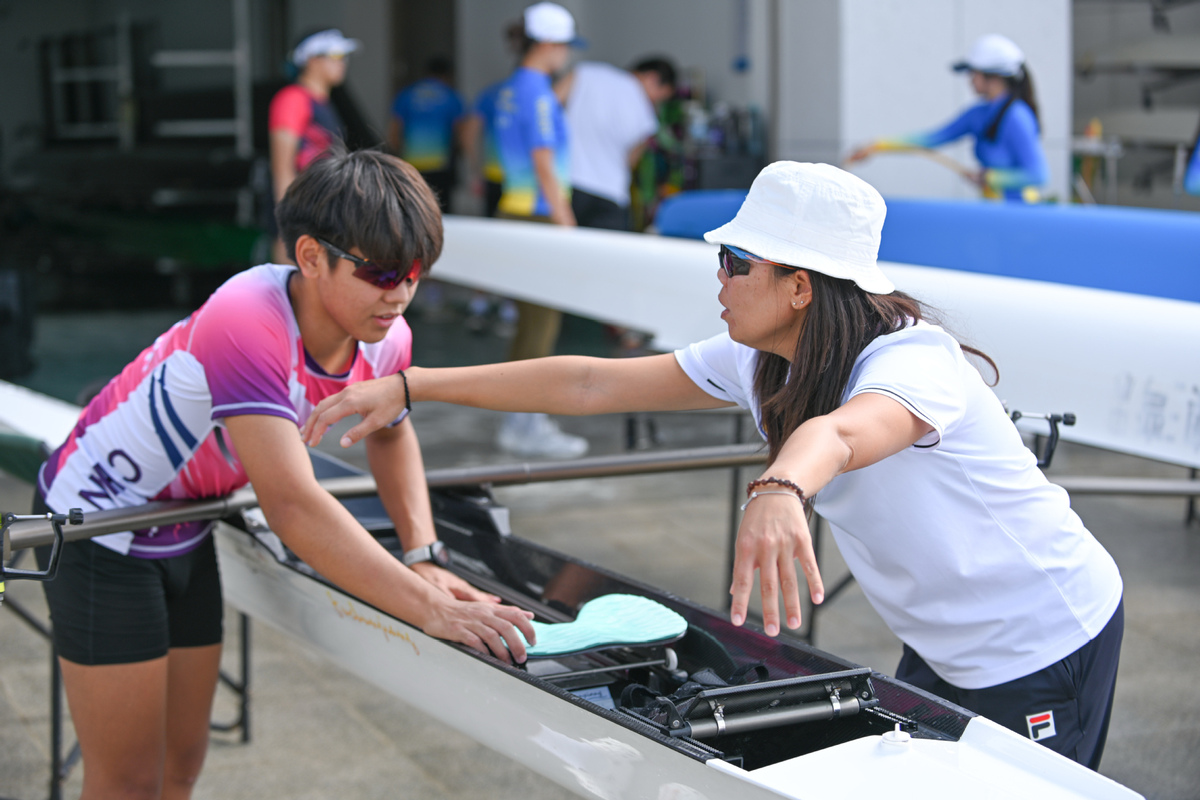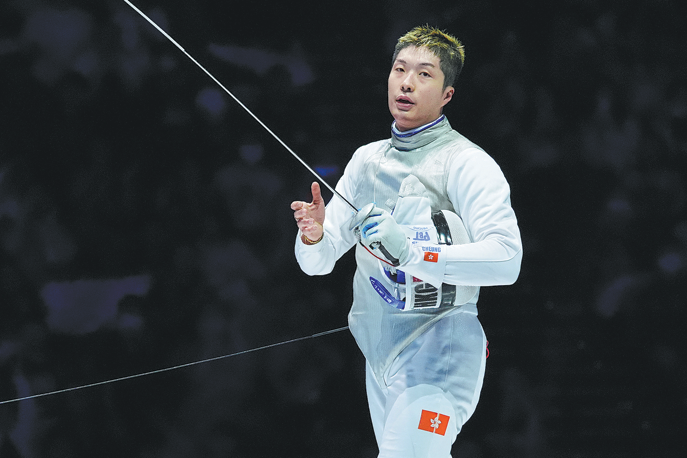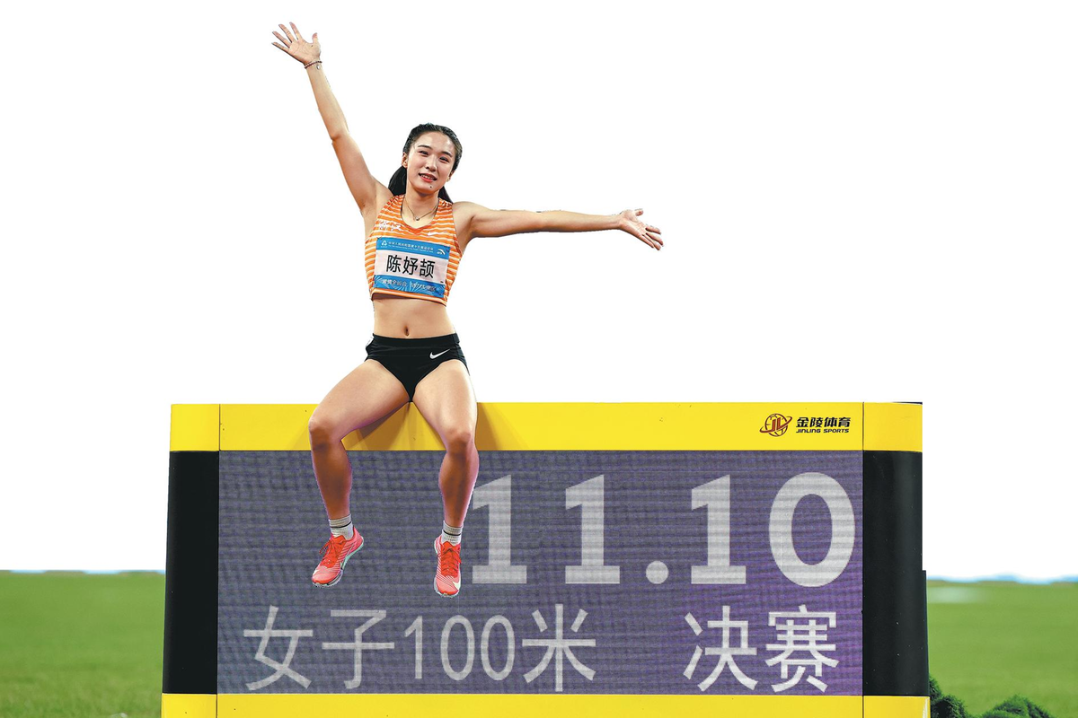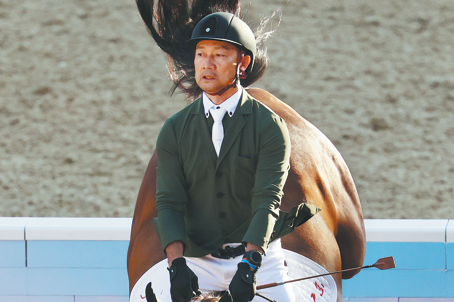Cities in Guangdong vow to boost sports legacy


Riding the momentum of the 15th National Games, various cities in Guangdong province are vigorously developing their own distinctive sports events, playing a part in promoting the development of the country's sports culture.
Senior city officials say their residents' enthusiasm for sports will remain intact long after the National Games flame is extinguished.
The games that opened on Nov 9 ended after a closing ceremony in the Shenzhen special economic zone on Friday. The country's largest comprehensive sports event was jointly hosted by various cities in Guangdong and the Hong Kong and Macao special administrative regions for the first time in its history.
"Half of the country's volleyball players come from Taishan city," said late Chinese premier Zhou Enlai in 1972.
"It is an affirmation of Jiangmen's volleyball excellence. More than that, it is the highest praise for the sportsmanship of the city," said Lin Jiansheng, vice-mayor of Jiangmen city, which administers the county-level Taishan city.
Lin promised his city would continue to promote the sport's development in the city even after the National Games.
"Volleyball is not merely an exclusive domain for professional athletes, but a cherished pastime embraced by the entire community in Jiangmen," he said.
Taishan, with a resident population of about 900,000, is home to an impressive 3,300 amateur volleyball teams. Nearly 350,000 residents, or about 38 percent of the population, regularly participate in volleyball activities.
From farmlands to professional courts, people across all professions and age groups engage in the sport, creating a nationwide fervor where "every village boasts a volleyball court and fields its own volleyball team".
According to incomplete statistics, Jiangmen has so far sent 542 elite athletes to provincial and municipal teams across China and nurtured 62 national-level masters of sports. At the recent National Games, 22 athletes from Taishan competed in the volleyball events.
Wu Guoxiong, vice-mayor of Zhanjiang, said the city would continue to make great efforts to build on its "home of diving" legacy, inspiring more people to appreciate and love the sport and allowing the reputation of "diving town" to go global in the months to come.
As one of China's pioneering cities in competitive diving, Zhanjiang has established a comprehensive training system that spans both urban and rural areas and covers all school age levels, said Wu.
"The system not only preserves scientifically grounded training methodologies but also excels at identifying promising talent and providing individualized coaching," he said.
By forming a complete "selection-cultivation-transition" pipeline, the city ensures a continuous emergence of new generations of diving talent, said Wu.
Located in the western coastal area of Guangdong, Zhanjiang is home to Olympic gold medalists Quan Hongchan, He Chong and Lao Lishi.
Chen Zhiwei, a member of the standing committee of the Dongguan committee of the Communist Party of China, said organizing the basketball event was a significant opportunity for Dongguan to enhance its reputation as the "national basketball city".
Chen pledged that Dongguan would continue to promote basketball after the National Games, contributing to the sport's development in the country, besides sending more athletes to the national teams.
Guangdong men's basketball team, mainly consisting of athletes from Guangdong Hongyuan Southern Tigers, won the championship with a perfect record in the games. Guangdong Hongyuan, which Chinese basketball icon Yi Jianlian once played for, is a holder of 11 CBA titles.
"From the citywide phenomenon of "Village BA" and "Factory BA" to the dynamic street basketball culture, Dongguan has become a key case study for observing the development of basketball in China," said Chen, who is also director of the united front work department in the city.
"Every village has a basketball court, every town has a basketball arena: that is now the most vivid portrait of the city," he added.
Dongguan was named the national basketball city by the General Administration of Sport in 2004.
Yan Hongyu, vice-mayor of Zhaoqing, said his city government would vigorously develop judo, promoting its dual nature — both soft and strong — to shape the city's unique sports character.
"Relevant departments will systematically promote the introduction of judo programs in primary and secondary schools across the city, and construct an integrated judo talent training system with the mechanism of 'popularization, selection, and transportation'.
"Judo enjoys widespread popularity among teenagers and young adults in Zhaoqing, which has two-time Olympic gold medalist Xian Dongmei," said Yan, adding that the city has built 18 schools with a judo-focused curriculum, while 62 schools have incorporated standardized judo exercises into their programs, achieving the goal of "ensuring judo lessons in every classroom and basic judo skills for every student".
zhengcaixiong@chinadaily.com.cn































